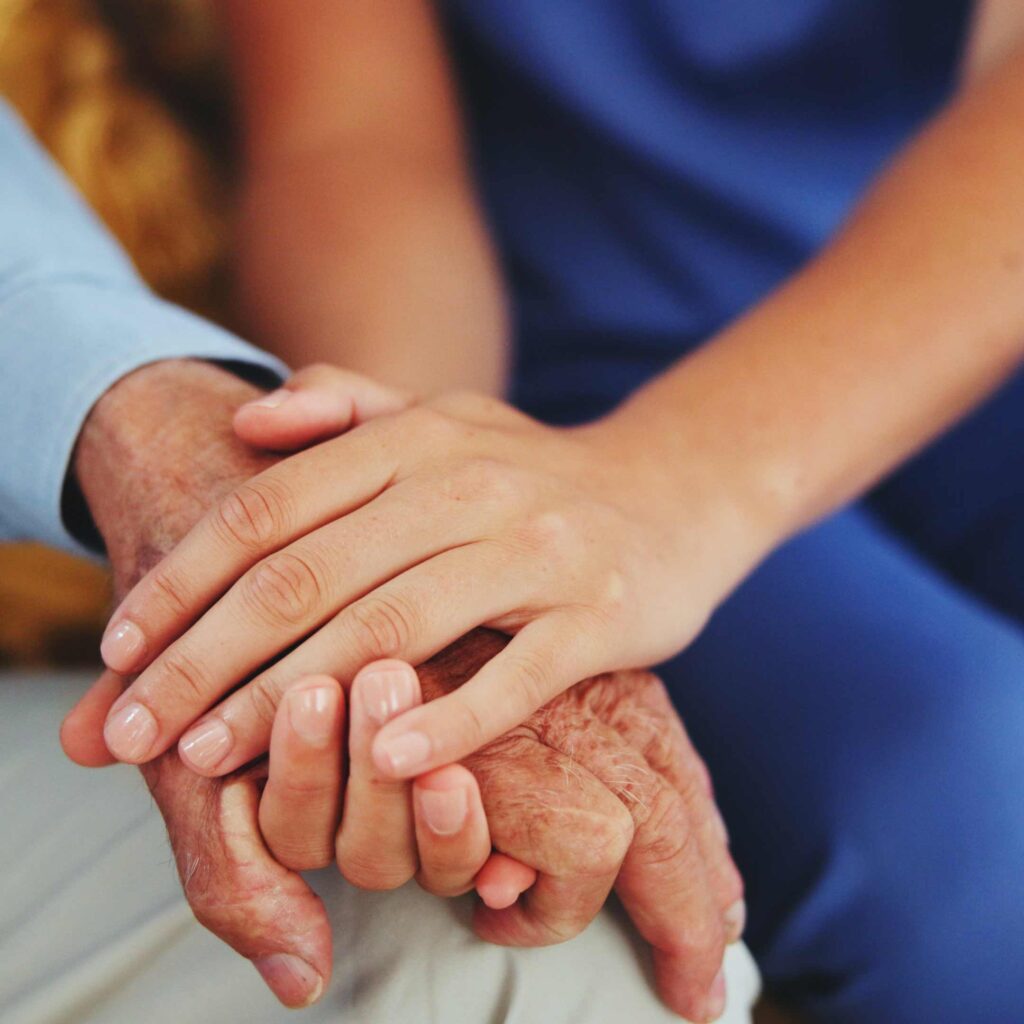Resources
How Do I Know if I Need Help With Drugs?
People experiment with drugs for many different reasons: curiosity, to have a good time, because friends are doing it, to improve athletic performance, or ease stress, anxiety, or depression. Use doesn’t automatically lead to abuse. Drug abuse and addiction are less about the amount of substance consumed or the frequency, and more about the reasons people turn to drugs in the first place as well as the consequences of their use. If your drug use is causing problems in your life—at work, school, home, or in your relationships—you likely have a drug abuse or addiction problem
Drug addiction and the brain
Taking a recreational drug causes a rush of the hormone dopamine in your brain, which triggers feelings of pleasure. Your brain remembers these feelings and wants them repeated.
When you become addicted, the substance takes on the same significance as other survival behaviors, such as eating and drinking.
Changes in your brain interfere with your ability to think clearly, exercise good judgment, control your behavior, and feel normal without drugs.
No matter which drug you’re addicted to, the uncontrollable craving to use grows more important than anything else, including family, friends, career, and even your own health and happiness.
The urge to use is so strong that your mind finds many ways to deny or rationalize the addiction. You may drastically underestimate the quantity of drugs you’re taking, how much it impacts your life, and the level of control you have over your drug use.
How drug abuse and addiction can develop
There is a fine line between regular use and drug abuse and addiction. Very few addicts are able to recognize when they have crossed that line. While frequency or the amount of drugs consumed do not necessarily constitute drug abuse or addiction, they can often be indicators of drug-related problems.
Drug abuse may start as a way to socially connect: Commonly, people try drugs for the first time in social situations with friends and acquaintances. A strong desire to fit in to the group can make it feel like doing the drugs with them is the only option.
Problems can sometimes sneak up on you: Drug use can gradually increase over time. Smoking a joint with friends over the weekend, or taking ecstasy at a rave, or cocaine at an occasional party, for example, can change from using drugs a couple of days a week to using them every day. Gradually, getting and using the drug becomes more and more important.
If the drug fulfills a valuable need, you may find yourself increasingly relying on it. You may take drugs to calm or energize yourself, or make you more confident. You may start using prescription drugs to cope with panic attacks or relieve chronic pain. Until you find alternative, healthier methods for overcoming these problems, your drug use will likely continue. If you are using drugs to fill a void in your life, you’re more at risk of crossing the line from casual use to drug abuse and addiction. To maintain a healthy balance in your life, you need to have positive experiences and feel good about your life without any drug use.
As drug abuse takes hold, you may miss or frequently be late for work or school, your job performance may progressively deteriorate, and you may start to neglect social or family responsibilities. Your ability to stop using is eventually compromised. What began as a voluntary choice has turned into a physical and psychological need.
Eventually drug abuse can consume your life, stopping social and intellectual development. This only reinforces the feelings of isolation that led to the drug use in the first place.
The good news is that with the right treatment and support, you can counteract the disruptive effects of drug use and regain control of your life. The first obstacle is to recognize and admit you have a problem, or listen to loved ones who are often better able to see the negative effects drug use is having on your life.

Signs and symptoms of drug abuse and drug addiction
There is a fine line between regular use and drug abuse and addiction. Very few addicts are able to recognize when they have crossed that line. While frequency or the amount of drugs consumed do not necessarily constitute drug abuse or addiction, they can often be indicators of drug-related problems.
Common symptoms of drug abuse
You’re neglecting your responsibilities at school, work, or home (e.g., flunking classes, skipping work, neglecting your children) because of your drug use.
You’re using drugs under dangerous conditions or taking risks while high, such as driving while on drugs, using dirty needles, or having unprotected sex.
Your drug use is getting you into legal trouble, such as arrests for disorderly conduct, driving under the influence, or stealing to support a drug habit.
Your drug use is causing problems in your relationships, such as fights with your partner or family members, an unhappy boss, or the loss of friends.
Common signs and symptoms of drug addiction
You’ve built up a drug tolerance. You need to use more of the drug to experience the same effects you used to attain with smaller amounts.
You take drugs to avoid or relieve withdrawal symptoms. If you go too long without drugs, you experience symptoms such as nausea, restlessness, insomnia, depression, sweating, shaking, and anxiety.
You’ve lost control over your drug use. You often do drugs or use more than you planned, even though you told yourself you wouldn’t. You may want to stop using, but you feel powerless.
Your life revolves around drug use. You spend a lot of time using and thinking about drugs, figuring out how to get them, and recovering from the drug’s effects.
You’ve abandoned activities you used to enjoy, such as hobbies, sports, and socializing, because of your drug use.
You continue to use drugs, despite knowing it’s hurting you. It’s causing major problems in your life—blackouts, infections, mood swings, depression, paranoia—but you use anyway.

Warning signs that a friend or family member is abusing drugs
Drug abusers often try to conceal their symptoms and downplay their problem. If you’re worried that a friend or family member might be abusing drugs, look for the following warning signs:
Physical warning signs of drug abuse
Bloodshot eyes, pupils larger or smaller than usual
Changes in appetite or sleep patterns
Sudden weight loss of weight gain
Deterioration of physical appearance, personal grooming habits
Unusual smells on breath, body, or clothing
Tremors, slurred speech, or impaired coordination
Behavioral warning signs of drug abuse
Drop in attendance and performance at work or school
Unexplained need for money or financial problems; may borrow or steal to get it
Engaging in secretive or suspicious behaviors
Sudden change in friends, favorite hangouts, and hobbies
Frequently getting into trouble (fights, accidents, illegal activities)
Neglecting personal hygiene or appearance
Psychological warning signs of drug abuse
Unexplained change in personality or attitude
Sudden mood swings, irritability, or angry outbursts
Periods of unusual hyperactivity, agitation, or giddiness
Lack of motivation; appears lethargic or “spaced out”
Appears fearful, anxious, or paranoid, with no reason
Warning signs of commonly abused drugs
Marijuana: Glassy, red eyes; loud talking, inappropriate laughter followed by sleepiness; loss of interest, motivation; weight gain or loss.
Depressants (including Xanax, Valium, GHB): Contracted pupils; drunk-like; difficulty concentrating; clumsiness; poor judgment; slurred speech; sleepiness.
Stimulants (including amphetamines, cocaine, crystal meth): Dilated pupils; hyperactivity; euphoria; irritability; anxiety; excessive talking followed by depression or excessive sleeping at odd times; may go long periods of time without eating or sleeping; weight loss; dry mouth and nose.
Inhalants (glues, aerosols, vapors): Watery eyes; impaired vision, memory and thought; secretions from the nose or rashes around the nose and mouth; headaches and nausea; appearance of intoxication; drowsiness; poor muscle control; changes in appetite; anxiety; irritability; lots of cans/aerosols in the trash.
Hallucinogens (LSD, PCP): Dilated pupils; bizarre and irrational behavior including paranoia, aggression, hallucinations; mood swings; detachment from people; absorption with self or other objects, slurred speech; confusion.
Heroin: Contracted pupils; no response of pupils to light; needle marks; sleeping at unusual times; sweating; vomiting; coughing, sniffling; twitching; loss of appetite.
Warning signs that a friend or family member is abusing drugs
If you suspect that a friend or family member has a drug problem, here are a few things you can do:
Take care of yourself:
Don’t get so caught up in someone else’s drug problem that you neglect your own needs. Make sure you have people you can talk to and lean on for support. Stay safe. Don’t put yourself in dangerous situations.
Avoid self-blame:
You can be supportive of a person with a substance abuse problem and encourage treatment, but you can’t force an addict to change. You can’t control your loved one’s decisions. Letting the person accept responsibility for his or her actions is an essential step to recovery.
Where Do I Start?
Some people are able to use alcohol or recreational/prescription drugs without becoming addicted. For many others, though, substance use can be seen as a way to escape the problems in their lives and, unfortunately, bears much more serious consequences. The use of alcohol or drugs to cope with life’s problems only exacerbates existing problems and likely causes new problems, resulting in feelings of isolation, helplessness or shame.
If you’re worried about your own, or a friend or family member’s, drug or alcohol use, it’s important to know that help is available. Learning about the nature of alcohol and drug abuse and addiction—why and how it develops, what it looks like, and why it can have such a powerful hold—will give you a better understanding of the problem, whether there is one, and how to best deal with it.
Pathway Society is here to help you get the answers and support you need.